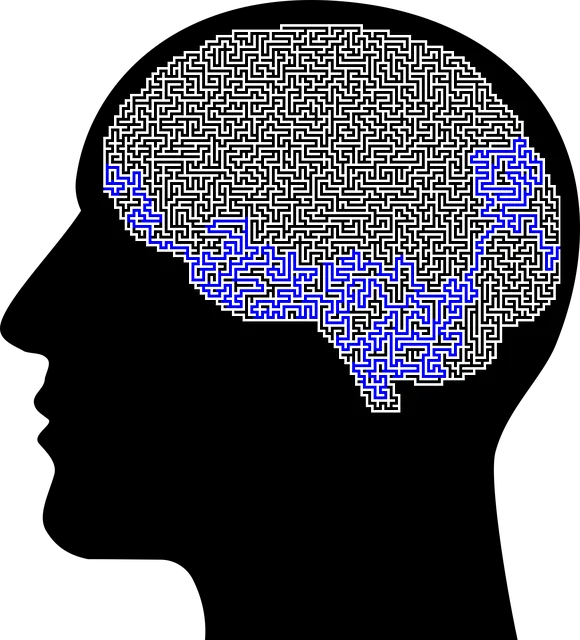Kaiser Permanente's mental health center in Broomfield enhances diagnosis accuracy through comprehensive case studies, national standards comparison, patient and provider feedback integration, self-care routines, cultural sensitivity, mindfulness meditation, and evidence-based practices like Emotional Well-being Promotion Techniques. Serving as vital community healthcare resources, these centers provide holistic healing by combining individual therapy, group support, medication management, and tailored treatment plans based on open communication and deeper patient understanding, as reflected in positive Kaiser Permanente mental health center reviews Broomfield.
Mental illness diagnosis accuracy is a critical aspect of healthcare, especially at progressive organizations like Kaiser Permanente. This article delves into efforts to enhance diagnosis practices at Kaiser Permanente’s Broomfield mental health center. We explore current challenges, analyzing tools and procedures in place, and propose innovative solutions. These include leveraging advanced technologies like AI and virtual reality, adopting evidence-based therapeutic models, and emphasizing continuous training for healthcare professionals. Additionally, we discuss successful implementation strategies, collaboration with research institutions, and patient feedback mechanisms that can drive ongoing improvement at Broomfield and similar centers.
- Evaluating Current Diagnosis Practices at Kaiser Permanente Broomfield
- – Overview of the role of mental health centers in community healthcare
- – Discussion on common challenges in accurate diagnosis of mental illnesses
Evaluating Current Diagnosis Practices at Kaiser Permanente Broomfield

At Kaiser Permanente Broomfield, efforts are underway to evaluate and improve mental health diagnosis practices. As a leading mental health center within the Kaiser network, they strive for excellence in patient care. Regular reviews of current procedures involve analyzing case studies, comparing diagnostic outcomes with national standards, and gathering feedback from both patients and healthcare providers. This comprehensive approach aims to identify areas for enhancement, ensuring accurate and timely diagnoses for all individuals seeking support at their facility.
The process includes an in-depth look at the integration of self-care routine development for better mental health and cultural sensitivity in mental healthcare practice. By fostering a culture of mindfulness meditation and incorporating patient experiences into decision-making processes, Kaiser Permanente Broomfield seeks to optimize diagnosis accuracy while promoting inclusive and effective treatment strategies.
– Overview of the role of mental health centers in community healthcare

Mental health centers play a pivotal role in community healthcare, serving as hubs for assessment, treatment, and recovery support. These facilities, such as the Kaiser Permanente mental health center reviews Broomfield highlight, are designed to meet the diverse needs of individuals struggling with various mental health conditions. They often offer a comprehensive range of services, from individual therapy sessions to group support groups, medication management, and specialized programs tailored to specific disorders.
By integrating evidence-based practices like Emotional Well-being Promotion Techniques, Mindfulness Meditation, and Empathy Building Strategies, these centers aim to improve diagnosis accuracy while fostering holistic healing. The supportive environment encourages open communication, enabling professionals to gain deeper insights into patients’ experiences, ultimately enhancing the effectiveness of treatment plans.
– Discussion on common challenges in accurate diagnosis of mental illnesses

Diagnosing mental illnesses accurately can be a complex task due to the intricate nature of human behavior and emotions. Many factors contribute to this challenge, as symptoms can often overlap between different disorders, making differentiation difficult. For instance, depression and anxiety share numerous commonalities, yet subtle differences in presentation might indicate distinct conditions requiring unique treatment approaches. This complexity is further exacerbated by individual variability, where the same symptom may manifest differently across individuals based on their cultural backgrounds, personal experiences, and unique neurobiological makeup.
At Kaiser Permanente mental health centers, like the one in Broomfield, efforts are underway to enhance diagnosis accuracy through comprehensive assessments and an integrated approach to care. Mental Health Policy Analysis and Advocacy plays a pivotal role by ensuring evidence-based practices are implemented, fostering continuous learning among healthcare providers. Additionally, promoting Emotional Intelligence among staff members helps in understanding patients’ emotional nuances, while Burnout Prevention Strategies safeguard the well-being of caregivers, enabling them to provide consistent and compassionate care.
Mental illness diagnosis accuracy is a critical aspect of patient care, and efforts to enhance this process are essential. The evaluation of current practices at Kaiser Permanente Broomfield’s mental health center reveals both challenges and opportunities for improvement. By addressing common issues such as subjective assessments and limited resources, the center can significantly contribute to the positive outcomes of patients with mental illnesses. Engaging in continuous quality improvement initiatives, based on feedback from patient experiences like those reviewed here, will ensure that Kaiser Permanente Broomfield’s mental health services remain a trusted resource within the community.






